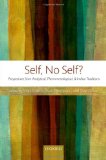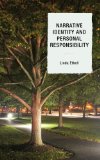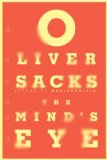new book – ‘Self, No Self?: Perspectives from Analytical, Phenomenological, and Indian Traditions’
February 17, 2011
Self, No Self?: Perspectives from Analytical, Phenomenological, and Indian Traditions, ed. by Mark Siderits, Evan Thompson and Dan Zahavi (Oxford University Press, USA, 2011)
Product description from the publisher:
The nature and reality of self is a subject of increasing prominence among Western philosophers of mind and cognitive scientists. It has also been central to Indian and Tibetan philosophical traditions for over two thousand years. It is time to bring the rich resources of these traditions into the contemporary debate about the nature of self. This volume is the first of its kind. Leading philosophical scholars of the Indian and Tibetan traditions join with leading Western philosophers of mind and phenomenologists to explore issues about consciousness and selfhood from these multiple perspectives. Self, No Self? is not a collection of historical or comparative essays. It takes problem-solving and conceptual and phenomenological analysis as central to philosophy. The essays mobilize the argumentative resources of diverse philosophical traditions to address issues about the self in the context of contemporary philosophy and cognitive science. Self, No Self? will be essential reading for philosophers and cognitive scientists interested in the nature of the self and consciousness, and will offer a valuable way into the subject for students.
See also: Mark Siderits at Mind & Reality Symposium, Siderits at PhilPapers, Evan Thompson at PhilPapers, Dan Zahavi at PhilPapers







